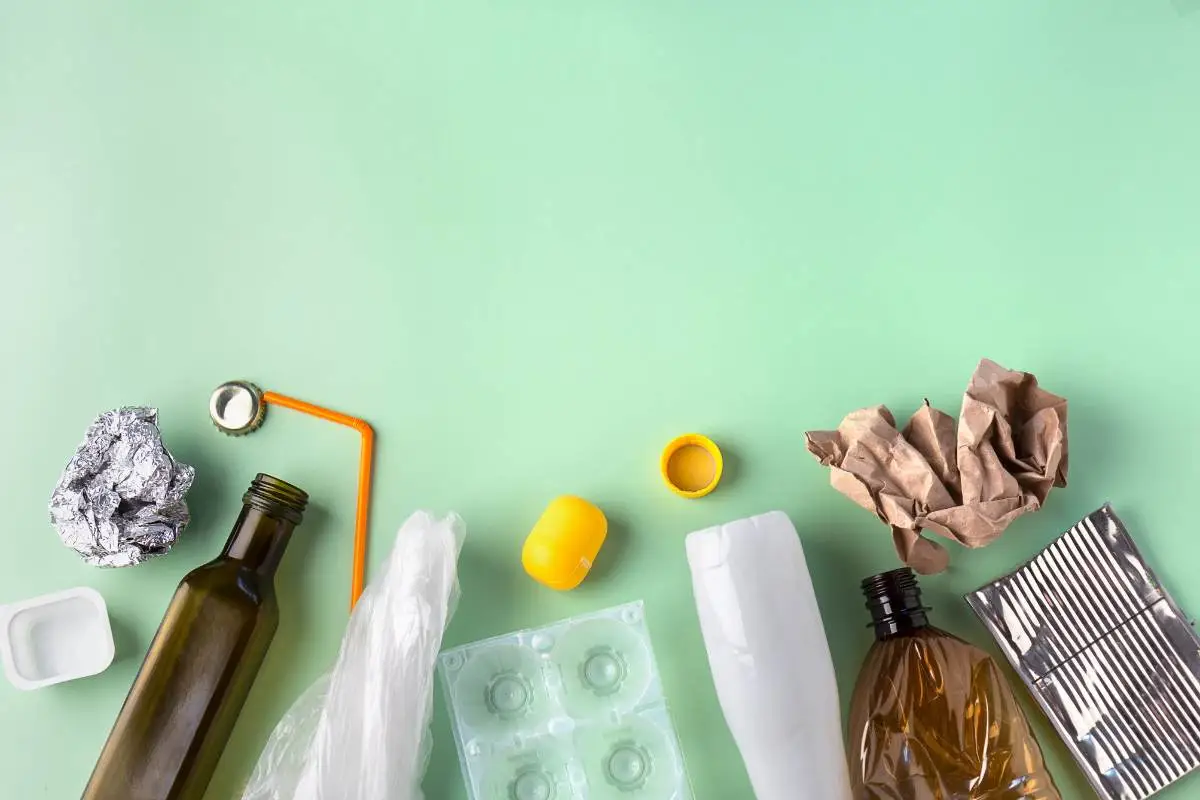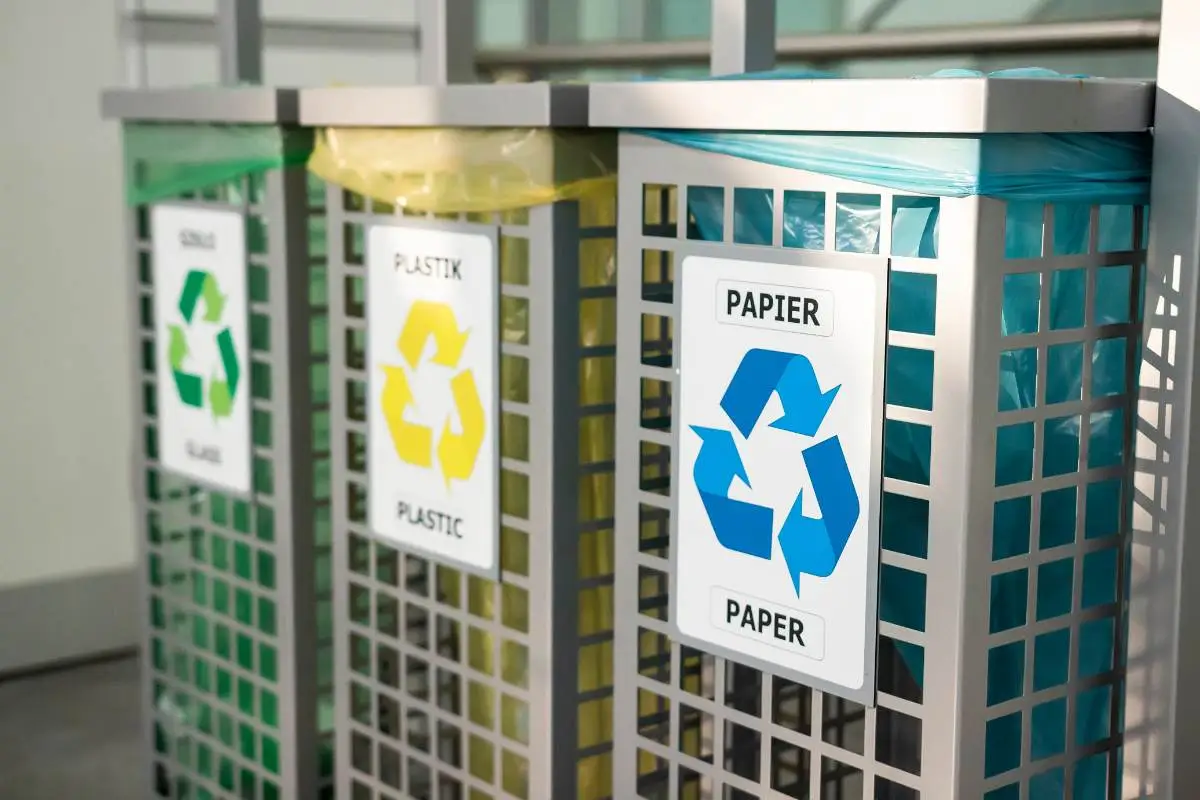Recycling Debunked: Fact vs Fiction for Effective Recycling
Recycling has become a hot topic in recent years, with more and more people recognizing the importance of reducing waste and preserving our planet. However, there are still many myths and misconceptions surrounding recycling that can hinder our efforts. In this post, we will debunk some of the most common myths and separate the facts from fiction, providing you with the knowledge to become an effective recycler. So, let’s dive in and set the record straight!
Understanding the Recycling Process: How Does It Really Work?
Before we debunk these recycling myths, let’s first understand how the recycling process actually works. Recycling starts with the collection of recyclable materials, such as paper, plastic, glass, and metal, which are then sorted and processed at a recycling facility.
Once the materials are sorted, they are cleaned, shredded, and turned into raw materials that can be used to make new products. These materials are then transported to manufacturers who use them to create new items, closing the loop and reducing the need for raw materials extraction.
Myth 1: Recycling is a Waste of Time and Energy
One of the most common misconceptions about recycling is that it is a waste of time and energy. However, this couldn’t be further from the truth. Recycling actually saves energy and reduces the need for raw materials extraction, which can be extremely energy-intensive.
According to the Environmental Protection Agency (EPA), recycling one ton of paper can save enough energy to power an average home for six months. Additionally, recycling aluminum cans saves 95% of the energy needed to produce new cans from raw materials.
By recycling, we can conserve energy and reduce greenhouse gas emissions, making it a crucial step in addressing climate change.
Myth 2: It Doesn’t Matter What Goes in the Recycling Bin
Another common myth is that it doesn’t matter what goes in the recycling bin, as everything gets sorted out at the recycling facility. In reality, the wrong items can contaminate the recycling stream and make it difficult to process materials effectively.
It is essential to only recycle items that are accepted in your local recycling program. Check with your local recycling guidelines to ensure you are recycling the right materials. Remember, when in doubt, it’s better to throw it out than to contaminate the recycling stream.
Myth 3: All Plastics are Created Equal
There is a common belief that all plastics can be recycled in the same way. However, different plastics have varying recycling processes and capabilities.
Plastics are labeled with numbers from 1 to 7 to indicate their resin identification code. These numbers help recycling facilities identify and sort plastics correctly. Some plastics, like PETE (polyethylene terephthalate) and HDPE (high-density polyethylene), are widely recyclable, while others, like PVC (polyvinyl chloride) and polystyrene, are more challenging to recycle.
To be an effective recycler, familiarize yourself with the resin identification codes and only recycle plastics that are accepted in your local recycling program.
Myth 4: Recycling Paper Wastes Water and Energy
There is a common misconception that recycling paper consumes more water and energy than creating new paper from trees. However, this is not the case.
Recycling paper actually saves water and energy. The process of recycling paper uses less water and energy compared to the production process of virgin paper. Additionally, recycling paper helps preserve forests and reduces the environmental impact of logging.
Myth 5: You Can’t Recycle Pizza Boxes or Takeout Containers
Many people believe that pizza boxes and takeout containers cannot be recycled due to food contamination. While it is true that heavily greased or food-stained cardboard cannot be recycled, clean pizza boxes and takeout containers can be recycled.
Before recycling, remove any food residue and separate the clean parts of the boxes or containers. By doing this, you can still recycle these items and reduce waste.
Myth 6: Recycling is Just a Way for Manufacturers to Save Money
Some people believe that recycling is just a way for manufacturers to save money by using recycled materials instead of purchasing raw materials. While recycling does offer cost savings in terms of raw materials, it also has significant environmental benefits.
Recycling reduces the need for resource extraction, conserves energy, and decreases greenhouse gas emissions. It is a crucial part of sustainable waste management and helps protect our environment for future generations.
Myth 7: It’s Better to Throw Away Plastic Bags Instead of Recycling Them
There is a common misconception that it’s better to throw away plastic bags instead of recycling them. However, plastic bags can be recycled and should not be thrown in the trash.
Many grocery stores and retail outlets have recycling programs specifically for plastic bags. These bags can be recycled into new plastic bags or other plastic products. Additionally, using reusable bags instead of disposable plastic bags is an even better way to reduce waste.
Myth 8: Recycling One Aluminum Can Saves Enough Energy to Power a TV for 6 Hours
It is a widely circulated myth that recycling one aluminum can saves enough energy to power a TV for 6 hours. While recycling aluminum cans does save significant amounts of energy, the specific claim of 6 hours of TV power is exaggerated.
According to the EPA, recycling one aluminum can save enough energy to power a 60-watt light bulb for more than 4 hours. While not as impressive as the myth claims, it is still a substantial energy saving.
Myth 9: Recycling Electronics is Pointless
With the rapid advancement of technology, electronic waste has become a significant concern. Some people believe that recycling electronics is pointless and that the materials end up in landfills anyway.
While it is true that not all electronic waste gets properly recycled, it is essential to recycle electronic devices to recover valuable materials such as gold, copper, and silver, as well as to prevent hazardous substances from leaching into the environment.
Many recycling programs and electronic retailers offer electronic waste recycling options, allowing you to dispose of your old devices responsibly.
Myth 10: Recycled Products are of Poor Quality
There is a common misconception that products made from recycled materials are of poor quality compared to those made from virgin materials. However, this is not necessarily true.
Recycled materials can be processed and transformed into high-quality products that meet or exceed the standards of virgin materials. In fact, many recycled products are indistinguishable from those made from new materials.
Myth 11: Recycling Glass is Not Worth the Effort
Some people believe that recycling glass is not worth the effort because it requires a lot of energy and resources. However, recycling glass is a crucial part of waste management.
Glass can be recycled indefinitely without losing its qualities. Recycling glass reduces the need for raw materials extraction and saves energy. Additionally, recycling glass helps reduce the amount of glass waste in landfills, where it can take thousands of years to decompose.
Myth 12: You Can’t Recycle Styrofoam
There is a common misconception that styrofoam cannot be recycled due to its composition. While it is true that traditional styrofoam, also known as expanded polystyrene foam (EPS), is challenging to recycle, it is not impossible.
Some recycling facilities and specialized companies can recycle styrofoam. When recycling styrofoam, it needs to be clean and free from any contaminants. It’s essential to check with your local recycling facilities or specialized companies for proper styrofoam recycling options.
Myth 13: Recycling is Only for Certain Materials
Recycling is not limited to specific materials. Many different materials can be recycled, including paper, plastic, glass, metal, cardboard, textiles, and more.
It is essential to check with your local recycling guidelines to understand which materials are accepted in your area. Recycling programs may vary from one location to another, so it’s crucial to be aware of the specific recycling options available to you.
Myth 14: Recycling Doesn’t Make a Difference in the Grand Scheme of Things
Some people believe that recycling doesn’t make a significant difference in the grand scheme of things and that individual efforts are pointless. However, every recycling effort counts and contributes to the overall impact.
By recycling, we conserve resources, reduce energy consumption, and decrease the amount of waste sent to landfills. Collectively, these efforts make a significant difference in preserving our planet and creating a more sustainable future.
Myth 15: Recycling Soon Becomes Landfill Anyway
There is a common misconception that recycling eventually ends up in the landfill anyway. While it is true that not all materials can be recycled, recycling plays a vital role in waste management.
By recycling, we divert materials from landfills and reduce the amount of waste that needs to be disposed of. Additionally, recycling helps conserve resources and reduce the environmental impact of extracting and manufacturing new materials.
Myth 16: Recycling is Expensive and Inefficient
Another common myth is that recycling is expensive and inefficient. However, recycling can be a cost-effective waste management strategy, especially when compared to the cost of landfilling.
While recycling does require upfront investment in collection and processing infrastructure, the long-term environmental and economic benefits outweigh the initial costs. Recycling also creates jobs and stimulates the economy by supporting the recycling industry.
Remember, by understanding the truth about recycling and debunking these myths, we can all make a difference in protecting our environment. Let’s separate fact from fiction and work towards effective recycling practices. Together, we can create a sustainable future for generations to come.





